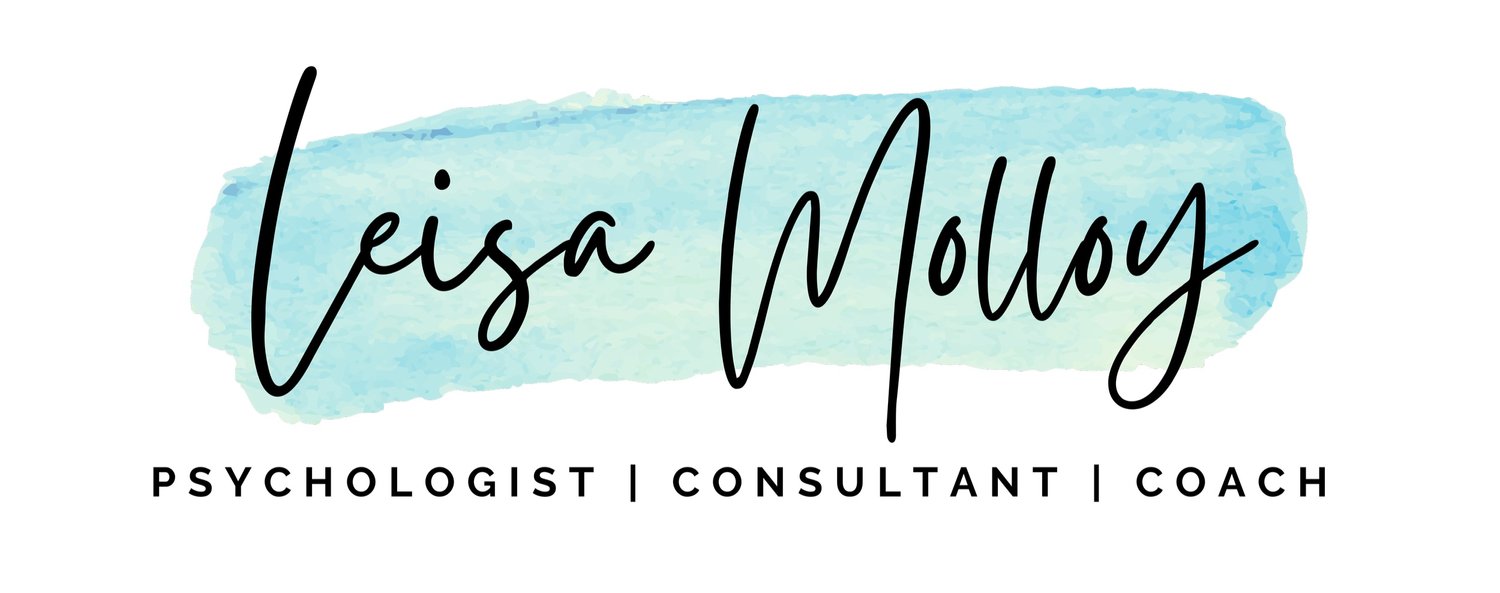
Feedback Skills Training & Workshops
Help your leaders learn the skills, tools & frameworks for having meaningful, specific and constructive feedback conversations.
Do your leaders struggle when it comes to providing feedback?
Typically, I start my Feedback & Coaching Skills workshops with a question similar to this - “How do you feel about giving feedback?”
In every single workshop I hear at least one or two of these responses…
“Oh, I’m fine with giving positive feedback. Not so much when it’s feedback for improvement!”
“I hate it! I’d prefer to do just about anything else.”
“It really depends on the team member. Some are easy to give feedback to. Others, not so much…”
“I tend to get really anxious before the conversation - and then rush and blurt it out as quickly as possible!”
“I get really worried about how the other person will react. I just really don’t want to upset them.”
Giving feedback can be really hard.
Let’s face it. Giving feedback can be really hard.
In part, this is because many leaders aren’t really taught the skills and tools to have effective feedback conversations. In many cases they’ve never even been the recipient of a good feedback conversation (so don’t really know what it looks like).
And we’re all human, right? As humans, we’re ‘wired’ to avoid conflict - or anything else that leads to a risk of other people disliking or rejecting us. It’s a social, evolutionary thing that (often unknowingly) influences our behaviour.
On top of that, we’re brought up being told to “be nice”.
Another common problem? Knowing HOW to give feedback in a way that is specific and actionable - so that others have a clear understanding of what they can do differently.
But here’s the thing…
Feedback is really, really important.
If you are a leader, part of your job is to give feedback.
Feedback plays a crucial role in developing talent, improving morale, solving problems, creating clarity, and building the right culture.
The good news… (yay!)
The good news is that there are practical tools, skills, and frameworks that can help you to get REALLY good at giving feedback (of all kinds), making you into the great people leader that you want to be.
About my Feedback Skills Programs…
My Feedback Skills programs provide participants with skills, tools, and frameworks for having meaningful, specific and constructive feedback conversations.
They include a strong emphasis on adopting a very open, curious and ‘human’ approach - while also providing clarity around required shifts in behaviour or performance. This helps participants to be clear with feedback, while also cultivating trust, clarity, and psychological safety.
Some of the topics explored in the program…
Skills, behaviours & frameworks
Giving feedback based on the Radical Candor philosophy
A flexible, skills-based framework that can be adapted to suit different contexts
Setting up feedback & coaching conversations
Building trust & psychological safety
Creating clarity & avoiding misinterpretation
Providing specific, objective & actionable feedback
Creating an open, two-way dialogue
Listening skills - asking open questions, using reflective statements, etc.
Setting clear expectations around performance
Techniques for agreeing on actions & next steps
Key ideas & insights
Why many existing feedback models aren’t sufficient
The elements of a good feedback conversation
Common mistakes when providing feedback
Why remote feedback conversations can be harder (and what to do about it)
Why you need to tame your “advice monster”
How to respond to others’ emotions (e.g. when they become angry, upset, or defensive)
Why people are ‘wired’ to take it personally
Creating psychological safety
Understanding common ‘triggers’ and reactions
Things you can actually SAY (tools, resources and takeaways to help with this!)
“Clear is kind. Unclear is unkind.”
Extra tools & support…
One of the key aims of the program is to set participants up for success after the program has ended.
As such, participants will have access to a broad range of resources & tools to help them confidently go away and apply all of their skills and learning in ‘real life’.
This library of resources will also include content to further extend their thinking, continue reflecting on key topics, and refresh their understanding of key skills or concepts.
After all, these skills take time & practice to learn - and are best learned in ‘real life’!
Additional resources include:
Access to a range of instructional videos
A set of practical, structured ‘Conversation Guides’
Helpful worksheets, resources & questionnaires
Access to online support (e.g. via Slack, Teams, etc.) where participants can ask questions, share insights, and learn from other people’s experience (note - depends on delivery method).
How is the program delivered?
Delivery Options
Programs can be delivered either remotely, in person, or through a combination of both methods. We tend to adjust based on different contexts & environments. Hybrid sessions are not generally recommended for this topic.
Either way, our aim is to create an engaging, practical & highly interactive participant experience.
Company Workshops
Organisations can arrange in-house programs for groups of 12-15 participants or leaders, or enquire about a broader organisational program.
Several options exist with regard to the number and length of sessions, timing, and other activities that can be built into programs to make learning ‘sticky’ and increase the likelihood of sustained behavioural change.
Who is this program for?
This program is ideal for leaders and individuals who…
Feel anxious about feedback - and want to get past that.
Are new leaders who have taken on direct reports for the first time.
Want to be known as a leader who grows & develops others.
Want to learn strategies for being “clear, but kind” when providing feedback.
Aren’t great with giving feedback, so want to build your skills / toolkit / confidence.
Are a bit TOO direct with feedback and want to create greater psychological safety.
This program is not really suited to leaders or individuals who…
Aren’t prepared to consider their own approach, behaviour & impact on others.
Are simply looking for a ‘quick fix’ to what they view as a “performance issue”.
Aren’t prepared to challenge their own biases, beliefs, and assumptions.
Don’t have any interest in understanding other people’s needs, motives & challenges.
“I wanted to say thank you so much for the training session yesterday on feedback and coaching. I found all of the information super insightful and the format engaging. I’d say I give feedback multiple times a week but I find it awkward no matter how well prepared I am. The session yesterday gave some great pointers on how to frame feedback and also highlighted the little mistakes I have made that were likely going to become habits if left unchecked!”
Why work with Leisa?
Why work with me? (Yep, I’m Leisa - hi!)
Firstly, I’m a registered and endorsed Organisational Psychologist with Masters qualifications and almost 20 years of experience in Organisational Psychology. This allows me to bring a depth of understanding of human behaviour to my programs. Put simply, I’m a total nerd about psychology and behaviour at work!
You’ll benefit from my broad experience and knowledge in the areas of leadership development, neuroscience, positive psychology, employee engagement, and behavioural change. I’ve worked with many different organisations and individuals in both the public & private sectors.
In the last few years alone I’ve facilitated over 230 workshops and sessions with 1450+ participants and worked with 460+ leaders as a coach, consultant, or facilitator. Many of my programs are focused on 'leadership conversations’, which is a key area of interest for me given how often I’ve seen leaders struggle with this.
I'm also pretty friendly! And really enjoy helping individuals to learn these skills and tools given the significant difference it can make :-)







